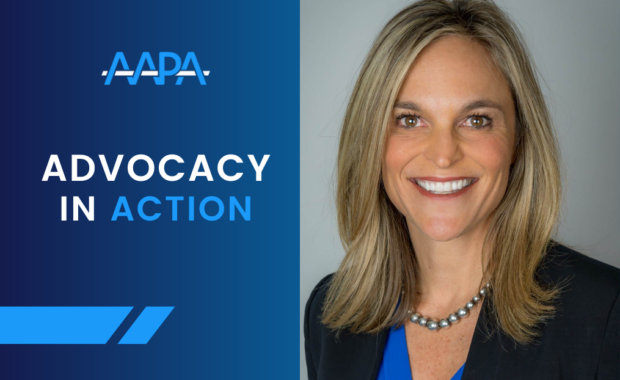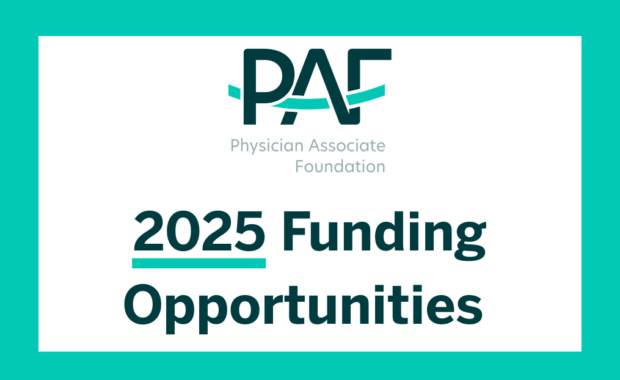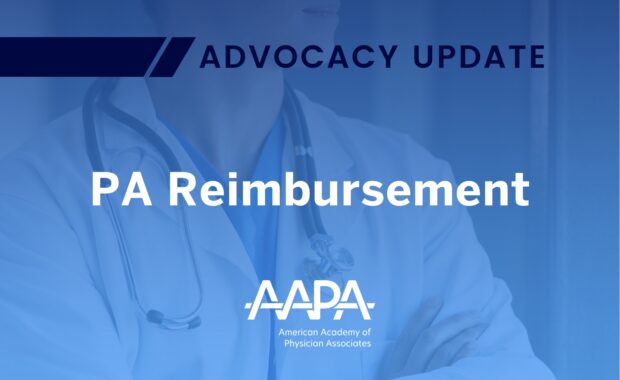Providing Care to Communities in Need in Guatemala
“More countries are recognizing how PAs can reinforce care for underserved populations”
July 14, 2025
By Jennifer Walker
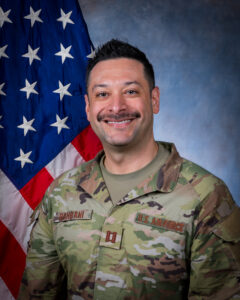
Captain Bechara Rahbani, a physician associate with the United States Air Force, grew up in El Salvador and Venezuela. It was a long-held dream of his to provide medical care in Central or South America.
When he learned that the Society of Air Force Physician Assistants and the Hospital de la Familia in Nuevo Progreso, Guatemala, were choosing one PA to participate in a medical mission, he jumped at the opportunity to apply. Rahbani’s qualifications seemed to make him an ideal fit: He spoke Spanish, was familiar with Guatemalan culture, and, as a 20-year member of the Air Force, was comfortable providing care in remote locations, which he has done many times as a medic and an Independent Duty Medical Technician.
In April 2025, Rahbani was thrilled to learn he was chosen for the mission—and that his skill set would allow him to reach even more people at their time of need. “The hospital wanted me to actually go to the local villages to provide care,” said Rahbani, who graduated from the Interservice Physician Assistant Program in 2021. “Some people have to walk several hours over very treacherous terrains to get to the hospital, and sometimes that’s impossible. They were really looking forward to reaching out to the local communities where they are.”
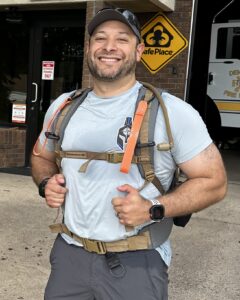 During his time in Guatemala in May 2025, Rahbani spent about six days providing primary care to children and adults, splitting his time between the villages and the Hospital de La Familia. He also had the opportunity to teach skills he has learned as a PA to Guatemalan physicians who were new to the profession. The medical mission—an example of the many opportunities outside of clinical settings that are available to PAs—reminded him of his deployments to rural locations in Iraq and the United States.
During his time in Guatemala in May 2025, Rahbani spent about six days providing primary care to children and adults, splitting his time between the villages and the Hospital de La Familia. He also had the opportunity to teach skills he has learned as a PA to Guatemalan physicians who were new to the profession. The medical mission—an example of the many opportunities outside of clinical settings that are available to PAs—reminded him of his deployments to rural locations in Iraq and the United States.
“We would often be the sole medical provider in the middle of nowhere,” said Rahbani, who currently practices at the Buckley Space Air Force Base in Aurora, Colorado, which provides care to roughly 3,100 active members from all branches of the military. “This is a huge responsibility and one I take with a lot of pride and honor.”
Providing Much-Needed Care in Guatemala
In Nuevo Progreso, Guatemala, the Hospital de La Familia Foundation has been providing nearly-free healthcare to the community since 1976. Guatemalan providers offer regular medical care, while teams of U.S. providers visit throughout the year to provide specialized surgeries and treatments. Rahbani—who left the U.S. at age 3 with his family and then returned at age 17 for college—spent Thursday and Friday at the hospital, seeing patients for acute and chronic primary care concerns. About half of his patients were children, a population he does not treat often, so he learned about pediatric medications and treatments, particularly in relation to parasitic infections.

But Rahbani’s most memorable patient at the hospital was an adult who walked in with severe injuries on her legs that looked like diabetic ulcers. She had the ulcers for more than 15 years and they covered both of her calves. For this patient, Rahbani and Guatemalan providers performed wound care, provided the appropriate antibiotics, and started her on medication for her diabetes. The goal was to get the patient’s chronic condition and wounds under control for the plastic surgery team, which is set to arrive in Nuevo Progreso in August to provide the next level of care.

This case has stuck with Rahbani because of the long-term nature of such a significant injury. “I would never see advanced wounds that had been untreated for so long in the United States,” he said.
Then, on Monday, Tuesday, and Wednesday, Rahbani went to the villages, traveling on dirt paths and rocky terrain to get to communities located around the mountains of North Guatemala. He rode in a pickup truck with a team that included one Guatemalan physician, two U.S. OBGYN physicians, a nurse, and a social worker.

After traveling one to two hours in 100-degree temperatures each day, Rahbani and the team found small dedicated spaces in each village that they used for their health clinic. But often there weren’t many resources beyond that. “Sometimes they wouldn’t have running water. Sometimes they wouldn’t even have beds,” Rahbani said. “We had to figure out how we can take care of patients in these very, very rudimentary areas.”
On his first trip to a village, Rahbani treated a 10-year-old child who had a lesion on his arm. Typically, the patient would have to wait for a visiting surgeon to come in and remove the lesion, but Rahbani was able to perform the procedure. They did not have adequate light, but a Guatemalan physician and a nurse held iPhone flashlights while Rahbani removed the lesion.

“This shows the difference in training between us as PAs and the Guatemalan physicians,” he said. “They were actually surprised that I could do this procedure as a physician associate.”
When he wasn’t caring for patients, Rahbani taught classes about diabetes management and battlefield acupuncture to Guatemalan physicians who had recently graduated from medical school and who were very interested in learning about these topics. “Teaching these physicians what I can do as a PA and increasing their capabilities was an extremely proud moment for me,” he said.

Now back in the U.S., Rahbani is excited that more of these opportunities are available for PAs. This includes not only chances to attend medical missions internationally, but also opportunities to volunteer with disaster relief efforts in the U.S. After catastrophic weather events, for example, state medical boards will grant 30-day state licenses to PAs and other medical professionals to provide vital support during recovery efforts.
“The fact that Guatemala let us as PAs practice to our full capability and treat their people is amazing,” Rahbani said. “More countries are recognizing the amazing skills that we have and how we can reinforce care for underserved populations. It makes me very excited for the future.”
Jennifer Walker is a freelance writer in Baltimore, MD. Contact Jennifer at [email protected].
You Might Also Like
Sixtus Atabong, PA-C, Leads Others to Help Underserved Communities Around the World
Lieutenant and PA Casie Parker Spends One Month at Sea as the Medical Officer for the NOAA Ship Okeanos Explorer
From Practicing in War Zones to Remote Islands, Melinda Rawcliffe Finds Endless Opportunities as a PA
Thank you for reading AAPA’s News Central
You have 2 articles left this month. Create a free account to read more stories, or become a member for more access to exclusive benefits! Already have an account? Log in.

